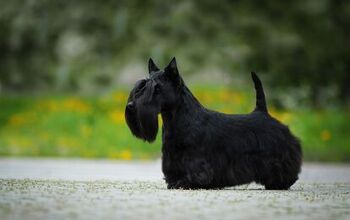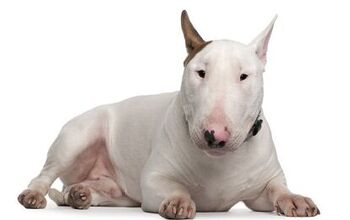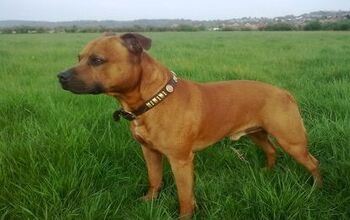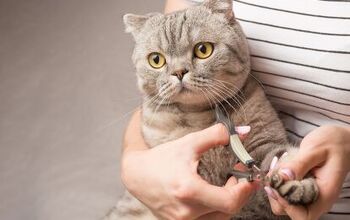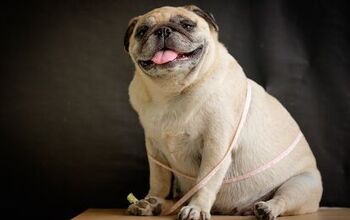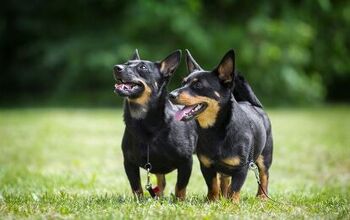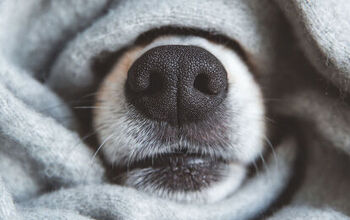Manchester Terrier


About Manchester Terrier
Feisty and fearless, the Manchester Terrier is a tenacious guy that has no clue that he is a small dog. He will readily alert his owners when strange things are afoot in the area but is not aggressive and will not approach strangers in a vicious manner. His sleek, good looks should show off his athletic body. Playful and fun-loving, Manchesters will happily play with kids and adults alike. This breed makes a great family pet.
With minimal grooming needs and his ability to get much of his exercise indoors, the Manchester Terrier is the perfect companion for those living in small apartments or condos. He is usually quiet however; if left alone for extended periods of time can become a barker. To learn more about Manchester Terriers, read on.
Feisty and fearless, the Manchester Terrier is a tenacious guy that has no clue that he is a small dog.
Originating in England, it is believed by many that the Manchester Terrier is the oldest of the recognizable terriers. Print documentation of this tenacious breed dates as far back as the 16th century. Bred to chase and kill rats and other vermin, Manchesters are now happy to hang out on the couch with his family. They do well in rural, suburban or urban homes.
The Manchester Terrier has been around for centuries however; the dog that we know today was actually developed by John Hulme. His desire was to develop a dog that could hunt down rats and kill them very quickly. To do so, he crossed the Black and Tan Terrier with the Whippet. The continuous breeding of the dogs from those crosses have given us the Manchester Terrier that we recognize today.
It is essential that Manchester Terriers be fed a high-quality diet of dry kibble. Dry food will help prevent the buildup of plaque, tooth loss, gum disease and bad breath. Tooth loss is a problem with the breed that can be easily prevented. Manchester Terriers love to eat and tend to become overweight very quickly. Their food intake should be limited to prevent overeating.
Not the easiest breed in the world when it comes to training, the Manchester Terrier needs a patient and calm trainer.
Not the easiest breed in the world when it comes to training, the Manchester Terrier needs a patient and calm trainer. His stubborn streak means that the trainer must always have loads of cookies to keep him interested in the session. Harsh methods and yelling will cause this breed to shut down.
Many owners have found that their Manchester Terriers can be great therapy dogs. They are easy to put in the car and actually like going for rides, which makes visiting hospitals and nursing homes easy. Providing they were socialized properly and had basic obedience training, Manchesters can do good things for those in less than ideal health.
Toy Manchester Terriers must weigh less than 12 pounds and Standard Manchester Terriers can weigh as much as 22 pounds.
Lively and spunky by nature, the Manchester terrier is an energetic little fellow. He is extremely playful, fetch being one of his favorite games. Although he absolutely adores his family, this breed does have an independent streak. For a small dog, the Manchester Terrier isn’t overly demanding of his family’s attention. He does tend to have separation issues so he would do best with families that are at home much of the time, or can bring the dog with them.
For small dogs, Manchester Terriers make incredible watchdogs. They will alert their families when someone is at the door or walking about outside. Manchesters get along rather well with kids, provided they have been socialized with them. They might be reserved when guests visit but will soon warm up to them.
There are several health concerns with Manchester Terriers including Von Willebrand’s Disease, cataracts, progressive retinal atrophy, cataracts and patellar luxation. As well, they are also prone to thyroid problems. During cold and inclement weather, the Manchester Terrier should wear a sweater or coat to keep him warm.
Manchester Terriers have the average lifespan of between 14 and 16 years.
Unlike many terriers, the Manchester Terrier does not require an incredible amount of exercise. He will need several good strolls daily to keep him fit and happy. This breed loves to travel and will be thrilled to go with his family on whatever errands they have in store for the day. Whether it’s a trip to the park or shopping at the pet store, the Manchester Terrier will be happy to tag along.
Manchesters also love to play fetch and will happily run back and forth with a ball or toy for hours. Their playfulness and energy make this breed the perfect companion for an active family with kids. Keep in mind that they are quick, despite their short legs and can be gone in a flash if unleashed or not in a fenced yard.
Lively and spunky by nature, the Manchester terrier is an energetic little fellow.
The American Kennel Club writes: “The Manchester Terrier is a lively, sharp witted breed that is eager to learn. The breed is extremely loyal to its owner(s) and forms a strong bond early on. Since it is a terrier breed, the Manchester has a tendency to test boundaries, making consistency important in any form of training. This is not a “barky” or neurotic breed, but they are good watchdogs. They do well in rural and urban environments.” The AKC first recognized the Manchester Terrier in 1886 for the Toy and 1887 for the Standard.
The coat of the Manchester Terrier should be short and smooth. It is always black-based with rich, mahogany markings on his face, ears, muzzle, legs and undercarriage. The markings on the dog are quite similar to those found on the Doberman Pinscher.
Grooming is minimal for a Manchester Terrier. A grooming glove or soft brush should be used weekly to keep him looking fresh and glossy. Bathing is only needed when the dog gets dirty or begins to smell bad.
Manchester Terrier puppies are fragile and can get hurt simply by hugging them too tightly. Care should be taken when allowing children to hold or carry them. This breed needs early socialization and Puppy Kindergarten classes to ensure that they will grow to be reliable and functioning members of the family.
Photo credit: CaptureLight/Bigstock.com; Willee Cole/Bigstock.com; cynoclub/Bigstock.com

Amy Tokic, Editor of PetGuide.com, is a passionate animal lover and proud pet parent of Oscar, a Shih Tzu/Chihuahua cross, and Zed, a Japanese Chin. Her love of animals began in kindergarten, when she brought her stuffed dog Snoopy into class with her every day. Now, she writes about her adventures in pet ownership and tirelessly researches products, news and health related issues she can share with other animal enthusiasts. In her free time, Amy loves perusing used book and record stores, obsessing over the latest pet products available and chasing squirrels with wild abandon (a habit attributed to spending too much time with her pooches).
More by Amy Tokic








